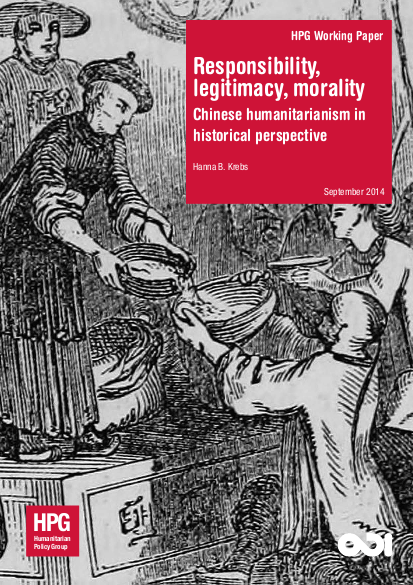
In an attempt to shed light on how the concepts whichunderlie ‘humanitarianism’ – such as compassion andthe desire to alleviate suffering – has been understoodduring the course of China’s history, the paper examinesits ancient roots by uncovering some of the origins ofChinese humanitarian thought. The chief focus of thepaper, however, concerns the transformation of thisconcept over the twentieth century, and especially afterthe establishment of the People’s Republic of China in1949. Without claiming to offer a fully representativeaccount of humanitarian practice and thought inChina, it provides an introduction to understandingsof ‘humanitarianism’ and related concepts. In doingso, it seeks to explain the changes and continuities in the country’s approach to humanitarian action, while also investigating the different terminologies used to describe it, the sentiments driving it and how it has been delivered throughout the last century. The paper argues that China’s humanitarian thought and action have consistently, but to varying degrees, been shaped by the ancient conceptual paradigm of responsibility and legitimacy. These two concepts have shaped China’s political culture for millennia, and Chinese humanitarianism cannot be understood apart from them.